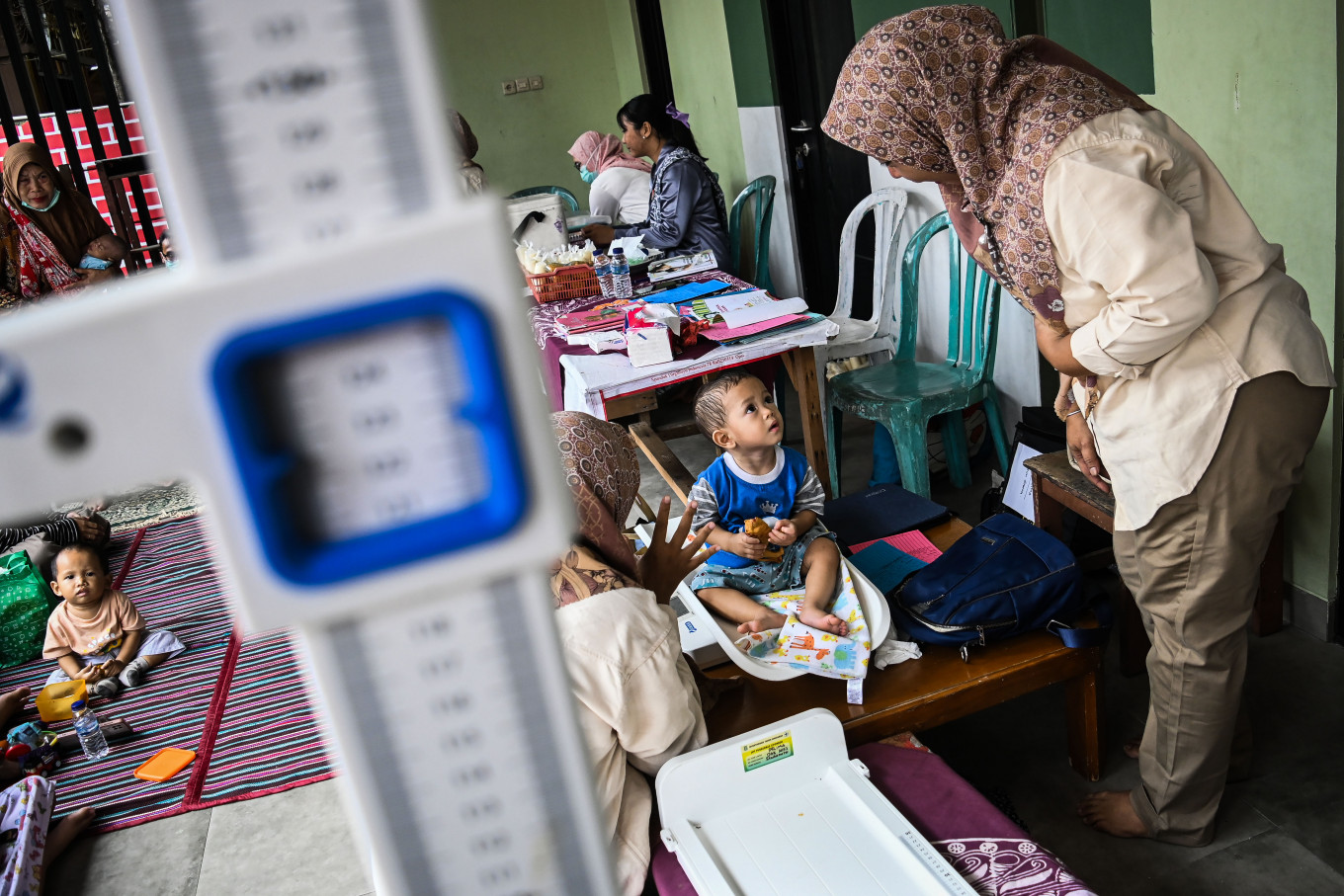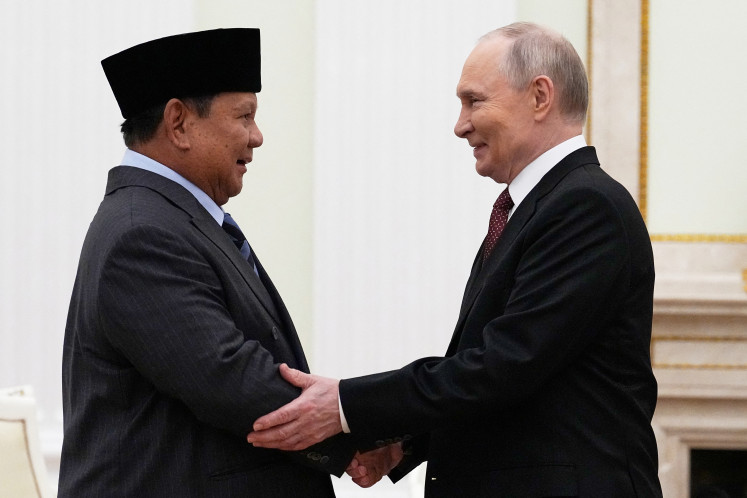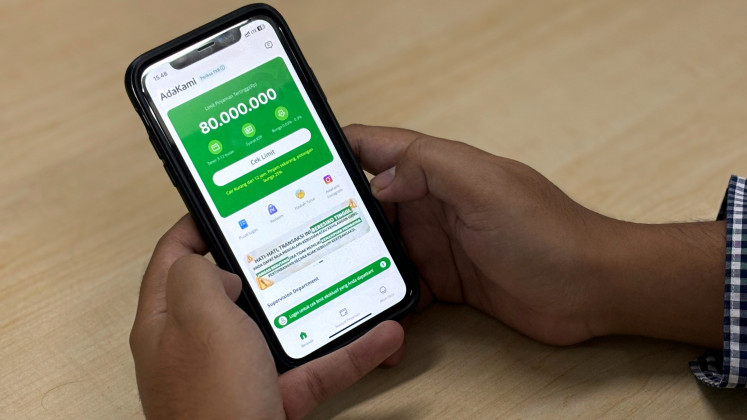Popular Reads
Top Results
Can't find what you're looking for?
View all search resultsPopular Reads
Top Results
Can't find what you're looking for?
View all search resultsHealth checks for all
The Prabowo administration is planning to launch in February its next flagship program: free birthday health screenings.
Change text size
Gift Premium Articles
to Anyone
P
resident Prabowo Subianto’s plan to offer free health checks to citizens of all ages on their birthdays is likely to be a much-needed gift, but the government must ensure the program’s equitable distribution across the vast archipelago.
Following the first inauguration ceremony for regional heads on Feb. 6, the government is set to launch another of the President’s flagship programs this month, with a budget allocation of Rp 4.7 trillion (US$288 million) and a target of around 60 million people this year.
Over the course of his five-year term, the program is expected to reach over 200 million beneficiaries, or around 68 percent of a projected population of 295 million in 2029, according to Statista.
With proper implementation, the birthday health screening program will undoubtedly improve the country’s notoriously low level of health awareness, which will in turn help address the deficit in its universal health insurance.
Official data reveal that a significant portion of the current 280 million population has never had a basic health check, particularly for noncommunicable diseases (NCDs) such as diabetes, stroke, hypertension and cardiovascular diseases, even though they are the leading causes of death.
The 2023 Indonesia Health Survey (SKI) shows that nearly 40 percent of the population has not been screened for NCDs. Among citizens aged 20 and above, around 63 percent have never had their blood sugar tested, while 33 percent have never checked their blood pressure. Left untreated, high blood sugar and high blood pressure can lead to fatal disease.
For example, ischemic heart disease, or a weakened heart due to reduced blood flow, is currently the primary cause of death and accounts for nearly 20 percent of all deaths nationwide. In addition, treating it requires the National Health Insurance (JKN) to shell out up to Rp 23.5 trillion of its annual Rp 158.8 trillion budget.
The JKN has recorded a progressive increase in deficit over the past few years to reach an estimated Rp 16 trillion in 2024, nearly double the figure in 2023. Put another way, it could eliminate this deficit if just ischemic heart disease is controlled through health screenings and other preventive measures.
The Health Ministry has encouraged the public to download and input their personal data to the SATUSEHAT health app “to ensure smooth access” to health screenings, as well as register or activate their JKN membership. Users can also create profiles for their children and parents.
The outreach appears to have succeeded, and as of last October, more than 277 million Indonesians had joined the national health scheme.
Once these steps have been completed, members will be notified about their free health check and designated Puskesmas out of the 10,400 community health centers participating in the program.
In addition to screening for NCDs, the program will also check for specific diseases and health conditions based on a beneficiary’s age and gender, such as tests for preexisting conditions and birth defects that can disrupt growth and brain development in children under 5.
Adolescents up to 18 years will be checked for obesity, diabetes and oral health, while adults will be tested for common cancers based on gender. Elderly people will be screened for geriatric conditions and diseases, including dementia, osteoporosis and coronary heart disease.
The government says the program is ready to launch, but the public should still monitor its implementation, particularly equal service distribution. Even Puskesmas, which provides basic health services, is not equitably distributed across the country, including many that are located far from villages and other population centers.
As with other public infrastructure and facilities, most healthcare facilities are concentrated on Java, including 50 percent of the country’s 3,155 hospitals are situated on the populated island, Kompas.com reported last March, citing 2024 data from Statisics Indonesia. Meanwhile, Papua has just 72 hospitals to cover a region that is three times the size of Java.
Nonetheless, we can appreciate the government’s noble intention to improve the health and welfare of its citizens, and we should give the program our full support. One way to do this is to spread the word about the birthday health check program, hoping that no one is left behind.











